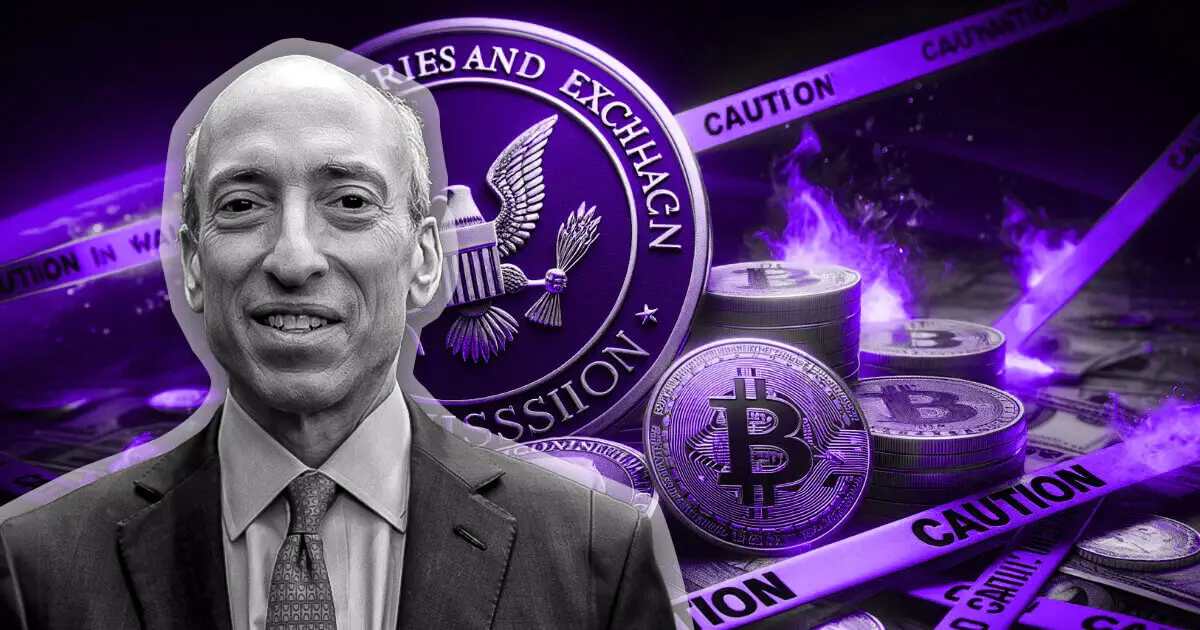The cryptocurrency sector has undergone immense transformation in recent years, but the regulatory environment remains complex and tumultuous. Recently, U.S. Securities and Exchange Commission (SEC) Chair Gary Gensler reiterated a significant differentiation between Bitcoin and other cryptocurrencies, establishing that Bitcoin is not subject to securities classification. This clarification seems particularly salient amidst rising tensions regarding the regulatory frameworks governing digital currencies.
In a recent appearance on CNBC’s Squawk Box, Gensler stated unequivocally that Bitcoin is classified as a commodity—much to the relief of those invested in the asset. This proclamation is crucial, as it signifies that Bitcoin is not subject to the same regulatory stringent scrutiny that securities face. Gensler’s comments follow the SEC’s approval of several spot Bitcoin exchange-traded funds (ETFs), a move that allows this digital asset to be traded on some of the most reputable exchanges like Nasdaq. This status affords Bitcoin greater legitimacy in the financial markets, positioning it as an investment vehicle rather than a liability.
While offering a clear stance on Bitcoin, Gensler did not shy away from criticizing a significant portion of the cryptocurrency sector for non-compliance with existing regulations. He emphasized that many market participants are not only aware of but also choosing to disregard established rules. This negligence, according to Gensler, has created confusion and instability across the market. The question remains, however: Is this failure to comply indicative of a flawed regulatory system, or is it simply a symptom of an industry still finding its footing?
The Ambiguous Case of Ethereum
Contrasting Bitcoin’s regulatory clarity is the ambiguous status of Ethereum. Unlike Bitcoin, which has received decisive classification, Ethereum’s regulatory future is murky, as the SEC has yet to designate it as a security or a commodity. This uncertainty extends to various projects built within Ethereum’s framework, which now face heightened scrutiny. Although Ethereum-based ETFs have been approved, the investigations into companies like Consensys and Uniswap illustrate a troubling double standard. Critics in Congress argue that such inconsistency fosters confusion, hinting at Gensler’s potential mismanagement of regulatory measures.
The SEC’s approach to cryptocurrency has sparked considerable backlash from lawmakers, particularly in the House of Representatives. Critics argue that the agency is stifling innovation by instilling fear and ambiguity. SEC Commissioners like Hester Peirce and Mark Uyeda have sided with lawmakers, asserting that regulatory clarity is essential for fostering innovation in the blockchain space. Gensler acknowledges the need for a robust regulatory framework to build investor trust, but the current ambiguity surrounding Ethereum and other digital assets could undermine that goal.
The Path Forward
As Gensler noted, the future of the cryptocurrency landscape lies in creating a regulatory environment that offers both clarity and reliability. Drawing parallels between cryptocurrency regulations and traffic regulations, he asserts that just as traffic lights enable safe travel, clear regulations can set the stage for a thriving crypto market. As we look ahead, it remains critical for regulatory bodies like the SEC to not only clarify their stance on various digital assets but also ensure that they facilitate an environment conducive to innovation and trust in the financial markets. The distinction between Bitcoin and Ethereum exemplifies the complexities of regulatory frameworks that need urgent addressing as the industry continues to evolve.



















Leave a Reply